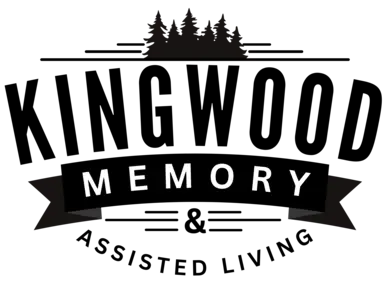EXPLORING THE FRONTIER OF BRAIN-COMPUTER INTERFACES

Brain-computer interfaces (BCIs) represent a groundbreaking technology that enables direct communication between the brain and external devices, bypassing traditional pathways of motor or sensory function. With the ability to decode neural signals and translate them into actionable commands, BCIs hold tremendous potential for enhancing human-computer interaction, restoring lost sensory or motor function, and unlocking new avenues for scientific exploration. This analysis delves into the principles, advancements, applications, and ethical considerations surrounding brain-computer interfaces, illuminating the transformative impact of this cutting-edge technology on neuroscience, medicine, and society.
- Principles of Brain-Computer Interfaces:
– Neural Signal Acquisition:
BCIs rely on the acquisition of neural signals from the brain, which can be obtained through various methods, including electroencephalography (EEG), electrocorticography (ECoG), and intracortical recordings. These signals reflect the electrical activity of neurons and neuronal populations, providing valuable insights into brain function and intention.
– Signal Processing and Decoding:
Once neural signals are recorded, sophisticated signal processing algorithms are employed to decode neural activity patterns and extract meaningful information. Machine learning techniques, such as pattern recognition and classification algorithms, are utilized to interpret neural signals and infer the user’s intent or cognitive state.
– Human-Machine Interface:
The decoded neural signals are translated into commands or control signals that interface with external devices, such as computers, robotic limbs, or assistive technologies. Through bidirectional communication between the brain and external devices, BCIs enable users to interact with and manipulate their environment using only their thoughts.
- Advancements in Brain-Computer Interfaces:
– Non-Invasive BCIs:
Non-invasive BCIs, such as EEG-based systems, offer a portable and accessible means of interfacing with the brain without the need for surgical implantation. Recent advancements in signal processing algorithms and wearable EEG devices have improved the spatial and temporal resolution of non-invasive BCIs, enabling real-time control of virtual environments, neurofeedback applications, and assistive technologies.
– Invasive BCIs:
Invasive BCIs involve the implantation of electrode arrays directly into the brain, allowing for higher-fidelity neural recordings and finer control over external devices. Intracortical BCIs offer greater spatial resolution and selectivity compared to non-invasive methods, making them suitable for applications such as neuroprosthetics, restoration of motor function, and brain-controlled robotic devices.
– Hybrid BCIs:
Hybrid BCIs combine features of both non-invasive and invasive approaches, leveraging the strengths of each modality to optimize performance and usability. Hybrid BCIs may utilize non-invasive sensors for initial calibration and user training, followed by the deployment of invasive electrodes for precise and robust control of assistive devices or neuroprosthetics.
- Applications of Brain-Computer Interfaces:
– Assistive Technologies:
BCIs hold promise for enhancing the independence and quality of life for individuals with severe motor disabilities, such as spinal cord injury or amyotrophic lateral sclerosis (ALS). Brain-controlled prosthetic limbs, speech synthesis devices, and environmental control systems enable users to interact with their surroundings and perform daily tasks using their thoughts.
– Neurorehabilitation:
BCIs are increasingly being utilized in neurorehabilitation settings to promote recovery and functional recovery following stroke, traumatic brain injury, or other neurological conditions. BCI-driven neurofeedback training and brain-computer interfaces for motor rehabilitation facilitate neural plasticity and motor learning, aiding in the restoration of movement and cognitive function.
– Cognitive Enhancement:
BCIs have the potential to augment cognitive abilities and facilitate learning in healthy individuals. Neurofeedback-based BCIs can train users to modulate their brain activity patterns associated with attention, memory, or emotional regulation, leading to improvements in cognitive performance, focus, and stress management.
- Ethical Considerations and Future Directions:
– Privacy and Data Security:
As BCIs collect sensitive neural data directly from the brain, concerns about privacy, data security, and informed consent must be addressed. Safeguarding neural data and ensuring user autonomy and confidentiality are paramount to the ethical development and deployment of BCIs.
– Equity and Access:
Ensuring equitable access to BCI technologies is essential to prevent exacerbating existing disparities in healthcare and technology access. Efforts to reduce costs, improve usability, and tailor BCI interventions to diverse user populations are crucial for promoting inclusivity and equitable outcomes.
– Neuroethics and Regulation:
Ethical considerations surrounding BCIs extend to issues such as cognitive enhancement, brain augmentation, and potential misuse of neurotechnology. Robust regulatory frameworks, ethical guidelines, and stakeholder engagement are needed to address emerging ethical challenges and promote responsible innovation in the field of brain-computer interfaces.
Brain-computer interfaces represent a revolutionary paradigm shift in human-machine interaction, offering unprecedented opportunities to harness the power of the mind for communication, control, and cognitive augmentation. From assistive technologies for individuals with disabilities to neurorehabilitation and cognitive enhancement applications, BCIs hold promise for transforming healthcare, augmenting human capabilities, and advancing our understanding of the brain. By navigating ethical considerations, fostering interdisciplinary collaboration, and prioritizing user-centered design, the field of brain-computer interfaces is poised to realize its full potential in improving human health, well-being, and societal inclusion.
Thank you for taking the time to explore Kingwood Memory Care & Assisted Living. We’re committed to providing compassionate and personalized care for individuals with memory-related challenges. If you have any questions or would like to learn more about our services, please don’t hesitate to reach out to us at 281.892.1400 or via email at info@kingwoodmemorycare.com. We’re here to support you and your loved ones on this journey.





